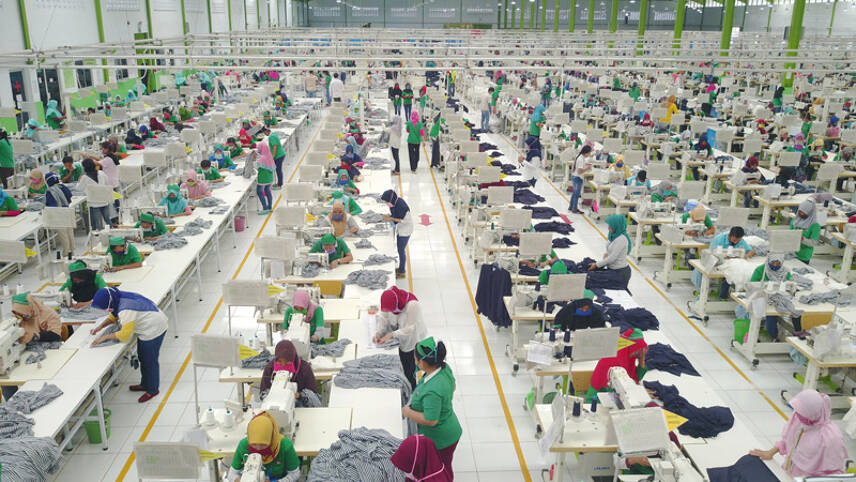Register for free and continue reading
Join our growing army of changemakers and get unlimited access to our premium content

Stock image.
That is the finding of a new analysis from Stand.earth, an environmental NGO based in the US and Canada, which has assessed ten large fashion firms’ plans for reaching net-zero emissions and published the findings this week.
The companies assessed in the scorecard are American Eagle; Gap Inc; H&M; Kering; Levi’s; Lululemon; Nike; VF Corp (parent company to Timberland, Vans, The North Face and more); Inditex (parent company to Zara) and Fast Retailing (parent company to Uniqlo).
All of these brands have stated a top-line net-zero ambition and have targets in place to at least halve their direct (Scope 1) and power-related (Scope 2) emissions by 2030. Stand.earth is concerned that half of the brands listed have not received verification from the Science Based Targets Initiative (SBTi) for their emissions goals, and half have not published interim goals before 2030.
Additionally, many of these brands’ targets have loopholes for the supply chain, despite the fact that most large fashion firms will see the majority of their emissions footprint being upstream. Some key findings in this respect include:
– Just two of the companies, H&M and Kering, have pledged to at least halve their Scope 3 (indirect) emissions this decade.
– These same two companies are the only two committed to 100% renewable energy across the supply chain by 2030.
– Only half of the brands assessed have set independent targets to phase-out thermal coal in supply chains. None share baseline data on coal use in supply chains.
– None of the companies have emissions targets that cover the entirety of their supply chains with no exclusions.
Material world
Stand.earth has also sounded the alarm over the fact that the fashion sector, by and large, is failing to measure and reduce the emissions and environmental impact of its growing use of synthetic materials.It found that none of the ten companies have public targets to reduce fossil-fuel-derived material use this decade. This is despite the fact that these materials represent around 15-20% of the fashion sector’s emissions footprint.
A report published by the Changing Markets Foundation last year revealed that polyester is now found in more than half of all textiles globally. That report also stated that the global, overall production of synthetic textiles based on fossil fuels has doubled within two decades and is due to expand further.
Stand.earth has concluded that the net-zero plans of fashion brands “still vary widely” and commonly “lack consistency in commitments, detail in transition plans and any real accountability on supply chains”.
At COP27 in Egypt earlier this month, the UN pushed for a crackdown on greenwashing amid the net-zero transition. Net-Zero Tracker subsequently published its latest big global stocktake, evidencing precious little progress in nations and non-state actors backing up long-term goals with science-based, interim ambitions.
The High-Level Expert Group on Net Zero Emissions Commitments of Non-State Entities used the UN summit to publish a new set of recommendations on setting short, mid and long-term commitments. These include prioritising deep emissions reductions, in line with science, over offsetting, and ensuring that any offsets which are used are robust.
Also at COP27, the International Organisation for Standardisation (ISO) published a net-zero ‘Guidelines’ paper. The paper is intended to be a “single core reference text” for any organisation wishing to credibly use terminology relating to net-zero emissions and create meaningful targets. It is available for free.
Related read: Blog: Fashion must embrace science-based targets


Please login or Register to leave a comment.